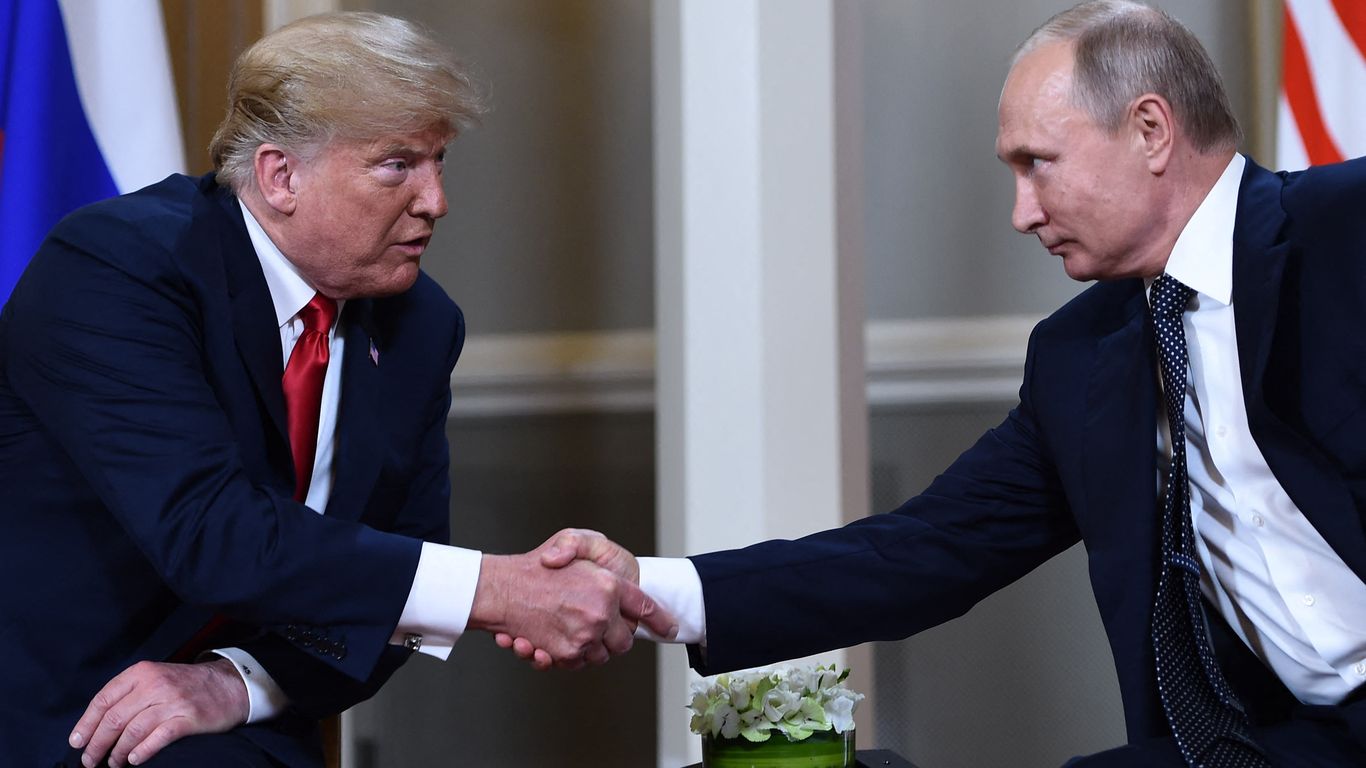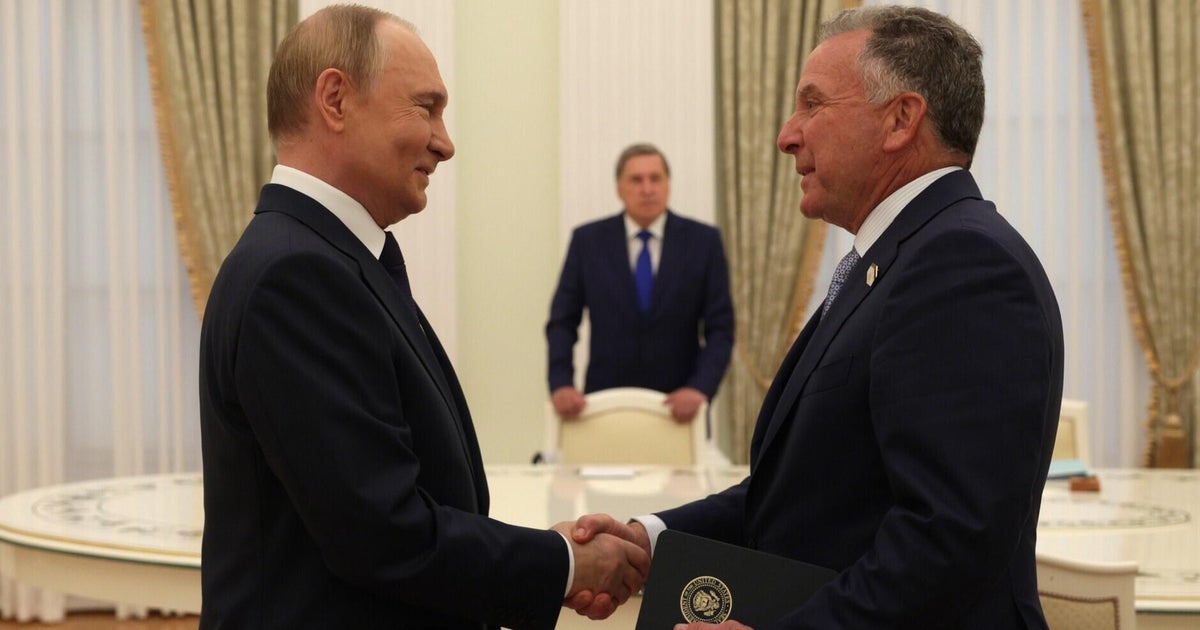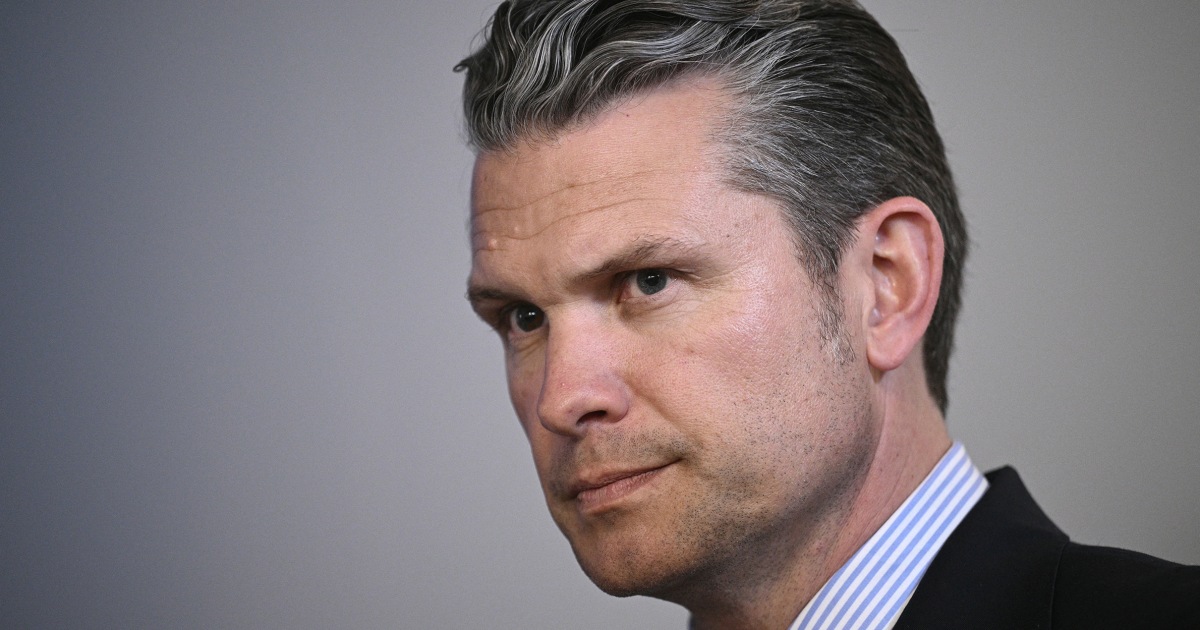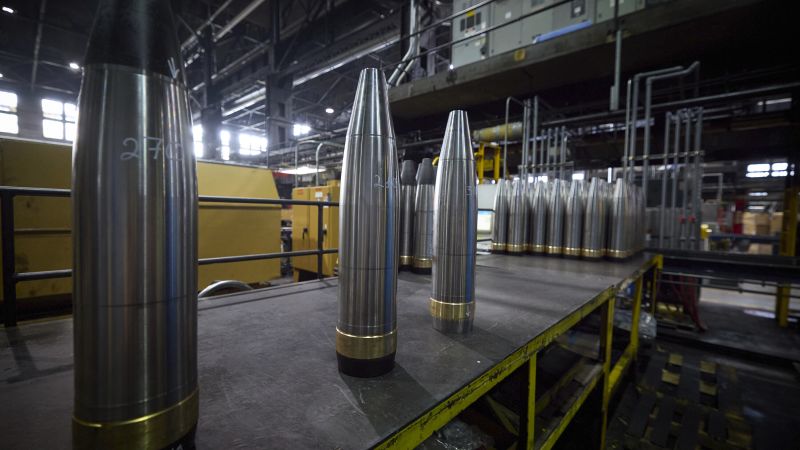Putin-Biden Meeting Leaves Ukraine Concerned

Introduction
Yesterday, Witkoff, an American real estate company, held a briefing with Ukrainian and NATO officials to discuss the recent meeting between Russian President Vladimir Putin and US President Joe Biden. The meeting has left Ukrainian officials confused and concerned about their country's future relationship with Russia.
Key Details
The meeting between Putin and Biden was the first time the two leaders have met in person since Biden took office. During the meeting, Putin denied any involvement in recent cyberattacks against the US and reaffirmed Russia's support for separatist rebels in eastern Ukraine. This has left Ukrainian officials worried about the future of the conflict in their country and the potential for further aggression from Russia.
Impact
The meeting between Putin and Biden has raised questions about the future of US-Russia relations and the potential impact on Ukraine. Ukrainian officials have expressed their concerns and are seeking reassurance from NATO and the US. The briefing by Witkoff provided a platform for open dialogue and potential solutions to address these concerns and safeguard the stability of the region.
About the People Mentioned
Vladimir Putin
Vladimir Putin is the current President of Russia, a position he has held for multiple terms since 2000, with a brief interlude as Prime Minister from 2008 to 2012[1][3]. Born in Leningrad (now Saint Petersburg) in 1952, Putin began his career in the Soviet Union’s security services, joining the KGB in 1975 and rising to the rank of Lieutenant Colonel by the time he left in 1991, following postings in East Germany and Leningrad[4]. After the Soviet Union’s collapse, he transitioned into politics, serving as an adviser to Saint Petersburg Mayor Anatoly Sobchak and later moving to Moscow, where he held various administrative roles under President Boris Yeltsin[6]. Putin was appointed Prime Minister in August 1999 and became acting President when Yeltsin unexpectedly resigned that December[3][6]. He won his first presidential election in March 2000, promising to stabilize Russia’s economy and political system after the tumultuous 1990s[3][7]. During his initial terms, he centralized power, reasserted federal control over Russia’s regions, and curtailed the influence of the country’s oligarchs through legal and economic measures[7]. Putin was re-elected in 2004 but, due to constitutional term limits, stepped aside in 2008, becoming Prime Minister under his successor Dmitry Medvedev, while retaining significant influence[3]. Constitutional amendments later extended presidential terms, and Putin returned to the presidency in 2012[1]. Putin’s time in office has been marked by assertive foreign policy, including military interventions in Syria in support of President Bashar al-Assad and the 2014 annexation of Crimea, which led to international sanctions[1]. Domestically, his tenure has seen increased state control over media, the suppression of political opposition, and constitutional changes consolidating executive authority[1]. In 2022, Russia’s full-scale invasion of Ukraine triggered a major international crisis, further isolating Russia from the West and prompting widespread condemnation[1]. As of 2025, Putin remains a dominant figure in Russian politics, having secured another term in office through constitutional changes that allow him to potentially remain president until 2036[1]. His leadership continues to shape Russia’s domestic trajectory and its role in global affairs, amid ongoing conflict in Ukraine and strained relations with NATO and Western countries[1].
Joe Biden
Joseph Robinette Biden Jr., commonly known as Joe Biden, is the 46th President of the United States, serving from 2021 to 2025. Born on November 20, 1942, in Scranton, Pennsylvania, Biden moved to Delaware with his family in 1953. He graduated from the University of Delaware in 1965 and Syracuse University Law School in 1968. Before entering national politics, Biden served on the New Castle County Council and later became one of the youngest U.S. Senators at the age of 29, representing Delaware from 1973 to 2009. During his Senate career, Biden chaired the Senate Judiciary Committee and Foreign Relations Committee. He played a crucial role in drafting several significant pieces of legislation, including the Violence Against Women Act and the Violent Crime Control and Law Enforcement Act. Biden also oversaw several U.S. Supreme Court confirmation hearings. In 2008, he was chosen by Barack Obama as his vice presidential running mate, serving two terms as the 47th Vice President of the United States. In 2020, Biden won the presidential election, defeating incumbent President Donald Trump. As President, he focused on rebuilding America's international leadership and implementing policies to address economic recovery and social issues. Biden's presidency concluded on January 20, 2025, when Donald Trump returned to office. Recently, Biden announced that he had been diagnosed with Stage 4 prostate cancer. Despite his health challenges, Biden remains a figure of national interest, with ongoing discussions about his political legacy and influence. His dedication to public service and his efforts to expand opportunities for Americans have been central themes throughout his career.
About the Organizations Mentioned
Witkoff
Witkoff is a renowned, privately held global real estate development and investment firm headquartered in New York City. Founded by Steven Witkoff in 1997, the company has established itself as a market leader in premier residential, hospitality, office, retail, and mixed-use projects across major cities in the United States and internationally. Witkoff's strategy involves identifying undervalued properties in central business districts and assets with strong repositioning potential in gateway markets, leveraging a vertically integrated operational approach to project development[3][4]. ### History and Key Achievements Over its 30-year history, Witkoff has developed a diverse portfolio that includes notable projects such as **The Shore Club Private Collection** in Miami Beach, **One High Line** in Chelsea, New York, and **10 Madison Square West** in Manhattan's Flatiron District[2]. The company's approach to innovative partnerships and unique project designs has allowed it to transform how people live, work, and travel[1]. ### Current Status Currently, Witkoff continues to operate with a focus on asset management, development, and real estate investment. The company maintains a strong presence in the industry with a team of 43 employees and annual revenue of $17.2 million[4]. Witkoff's commitment to integrity and partnership has been a cornerstone of its success, fostering long-term relationships with clients and stakeholders[1]. ### Notable Aspects - **Innovative Projects**: Witkoff is known for its creative strategies across diverse asset classes and its ability to reimagine traditional spaces into modern, luxurious developments[3]. - **Leadership**: Steven Witkoff's leadership has not only driven the company's growth but also led to his appointment as a U.S. special envoy, highlighting his influence beyond the real estate sector[6]. - **Global Reach**: Witkoff's projects span multiple continents, positioning it as a significant player in the global real estate market[3][4].
NATO
The **North Atlantic Treaty Organization (NATO)** is a transatlantic military alliance founded in 1949 to secure peace in Europe and protect democratic nations from Soviet aggression. It began with 12 founding members and has expanded to include 32 countries across North America and Europe as of 2025, including recent additions Finland (2023) and Sweden (2024)[1][3]. NATO's core principle is collective defense, meaning an attack against one ally is considered an attack against all, enshrined in Article 5 of its founding treaty[3]. Originally established as a Cold War bulwark, NATO has evolved beyond its initial Euro-Atlantic focus, engaging in missions worldwide, such as in Afghanistan and Libya[1]. The alliance remains central to U.S.-Europe military cooperation and has adapted to new security challenges, particularly Russia’s 2022 invasion of Ukraine, which has significantly reshaped NATO’s priorities. This aggression has spurred increased defense spending, stronger collective deterrence efforts, and accelerated Ukraine’s path toward potential membership[1][4]. In June 2025, NATO held its first summit in the Netherlands, where leaders agreed on raising defense spending targets to 5% of GDP—split between 3.5% for core defense and 1.5% for related security costs, including support for Ukraine. This marked a historic commitment to bolster the alliance’s military capabilities amid evolving global threats. The summit also emphasized eliminating defense trade barriers and reaffirmed the ironclad commitment to collective defense[2][5]. NATO’s ongoing significance lies in its role as a strategic security platform fostering cooperation among member states, responding to geopolitical instability, and adapting to emerging threats like terrorism and cyber warfare[4]. Its "open door" policy continues to invite eligible European democracies to join, reinforcing its mission to safeguard peace, democracy, and shared technological and defense innovations across allied nations[1][4].


















